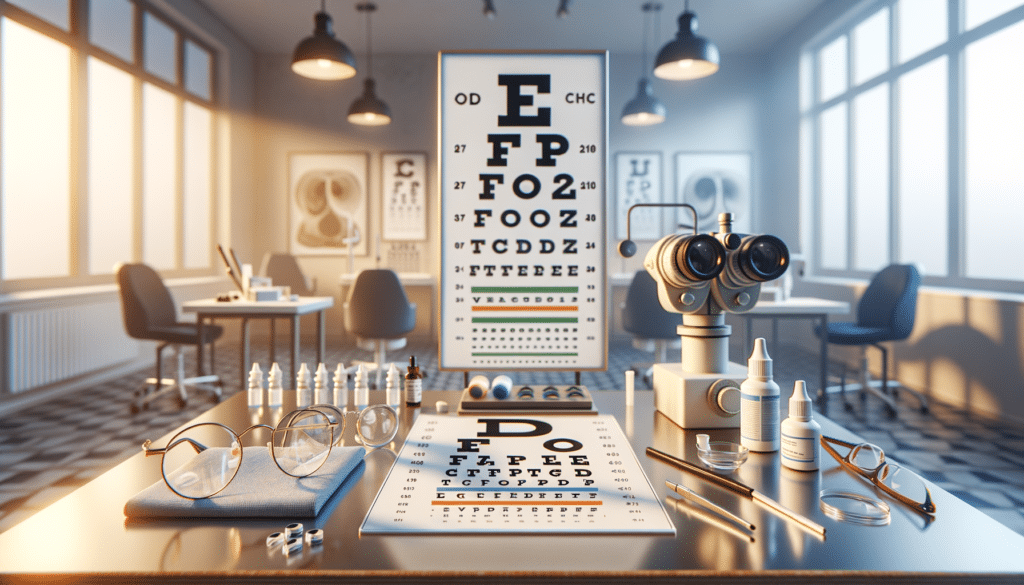Introduction to Vision Tests for Seniors
As we age, our bodies undergo numerous changes, and our eyes are no exception. Vision tests for seniors play a crucial role in maintaining overall health and well-being. These assessments are not only about ensuring clarity of sight but also about detecting potential eye conditions that can impact daily life. With an increase in life expectancy, understanding the importance of regular eye check-ups is more relevant than ever. Seniors often face challenges such as cataracts, glaucoma, and macular degeneration, which can significantly affect their quality of life. Regular vision tests can help in early detection and management of these conditions, allowing seniors to lead independent and fulfilling lives. In this article, we will explore the various aspects of vision tests for seniors, their significance, and how they contribute to a healthier lifestyle.
The Importance of Regular Vision Tests
Regular vision tests are essential for seniors as they help in early detection of eye conditions that can lead to vision impairment or loss. These tests are designed to assess various aspects of eye health, including visual acuity, eye pressure, and the condition of the retina and optic nerve. By identifying issues early, appropriate interventions can be implemented to prevent further deterioration. Studies have shown that seniors who undergo regular eye exams are less likely to suffer from severe vision impairment. Some key benefits of regular vision tests include:
- Early Detection: Identifying conditions like glaucoma or cataracts early can prevent severe vision loss.
- Overall Health Monitoring: Eye exams can reveal signs of other health issues such as diabetes or high blood pressure.
- Improved Quality of Life: Maintaining good vision helps seniors stay active and independent.
In addition to these benefits, regular vision tests can also provide peace of mind, knowing that any potential issues are being monitored and managed effectively.
Common Vision Problems in Seniors
Seniors are prone to a range of vision problems, many of which can be managed effectively with early detection and treatment. Some common vision issues include:
- Cataracts: A clouding of the eye’s lens leading to blurred vision, which is treatable with surgery.
- Glaucoma: A condition characterized by increased eye pressure that can damage the optic nerve, often requiring medication or surgery.
- Macular Degeneration: A disease affecting the retina, leading to loss of central vision, managed through lifestyle changes and medication.
- Diabetic Retinopathy: Damage to the retina caused by diabetes, which can be monitored and treated to prevent vision loss.
Understanding these conditions can help seniors and their caregivers recognize symptoms early, allowing for timely medical attention and management.
Types of Vision Tests for Seniors
Vision tests for seniors are comprehensive assessments that evaluate various aspects of eye health. These tests may include:
- Visual Acuity Test: Measures the sharpness of vision using a standardized eye chart.
- Refraction Test: Determines the correct prescription for glasses or contact lenses.
- Tonometer Test: Measures eye pressure to detect glaucoma.
- Dilated Eye Exam: Provides a detailed view of the retina and optic nerve to identify signs of diseases.
These tests are typically conducted by an optometrist or ophthalmologist and are tailored to the individual’s needs, ensuring a thorough evaluation of eye health.
Maintaining Eye Health in Seniors
In addition to regular vision tests, maintaining overall eye health is crucial for seniors. Lifestyle choices can have a significant impact on eye health, and adopting healthy habits can prevent or slow the progression of eye conditions. Some recommendations for maintaining eye health include:
- Balanced Diet: Consuming foods rich in vitamins A, C, and E, as well as omega-3 fatty acids, can support eye health.
- Regular Exercise: Physical activity improves blood circulation, which benefits the eyes.
- Protection from UV Light: Wearing sunglasses that block UV rays can prevent damage to the eyes.
- Smoking Cessation: Avoiding smoking reduces the risk of developing age-related eye diseases.
By combining regular vision tests with a healthy lifestyle, seniors can enjoy better vision and a higher quality of life.




